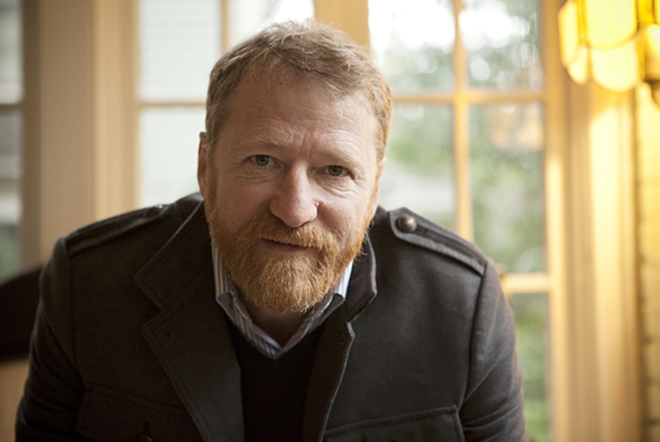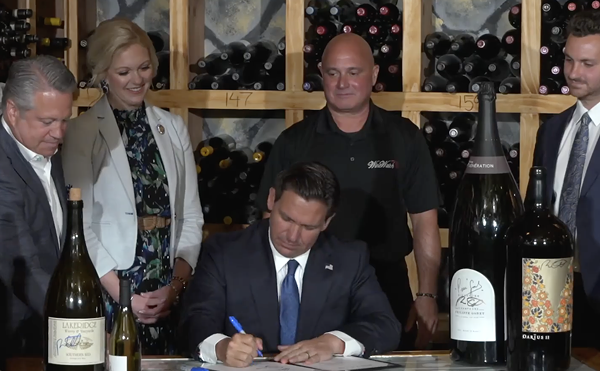
Thanks to iTunes, Pandora, Spotify, file-sharing sites and other online sources, fans now have access to music to a degree that wasn’t possible (or even thinkable) two decades ago.
But that instant accessibility cuts both ways. Those “shared files” often get downloaded for free, bypassing artist compensation. From 2000 to 2009, total U.S. album sales shrank by 52 percent, from over $14 billion to less than $7 billion a year, while music piracy exploded, with 40 billion tracks pirated worldwide in 2009 alone.
This phenomenon has worrisome implications, says Brooklyn-based author Chris Ruen in his provocative book, Freeloading: How Our Insatiable Hunger for Free Content Starves Creativity. The eternal question of the digital age — to pay or not to pay? — is also a question, he says, about the kind of culture we want to have. “Do we want it to be diverse?” he asked in a recent interview with CL. “Do we want to have a lot of different ideas coming, emerging from the margins and reaching an entire global population, with new voices having a chance to have careers, or don’t we?”
His book begins with Lars Ulrich of Metallica. In protesting file sharing (and suing Napster), Ulrich became the first star to stink up the happy-go-lucky music free-for-all on the Net, and was vilified for doing so.
Now, in the second full decade of the digital age, David Lowery has picked up his mantle.
The leader of the ’80s band Camper Van Beethoven and its popular ’90s successor Cracker, Lowery made headlines a year ago when he clashed with an NPR intern online over illegal file sharing. He mournfully declared that today’s generation of music lovers would end up spending more money on technology than music, writing, “Congratulations, your generation is the first generation in history to rebel by unsticking it to the man and instead sticking it to the weirdo freak musicians!”
Now Lowery is blasting Pandora for its advocacy of the Internet Radio Fairness Act (IRFA) being debated in Congress. Last month on the website Trichordist, he wrote a blog post that went viral entitled, “My song got played on Pandora and all I got was $16.89, less than what I make from a single T-Shirt sale!”
Earlier this month CL spoke by phone with Lowery as he sat outside the campus of the College of William and Mary in Williamsburg, Virginia. He currently teaches music business economics and finance at the University of Georgia and helped found the Athens Angel Fund.
He began our interview with a primer on the difference between a song’s copyright and the copyright of a song recording. He maintains that the songwriting copyright royalty is absurdly low, especially in the webcasting and streaming world. He says that debate over the royalties has become political because they’re known as “compulsory licenses,” whose price is set by the federal government.
Here is an edited transcript of our conversation:
David Lowery: You have these two well-established industries (music and the Internet) and one is obviously doing much better than the other. The players in webcasting are Apple, Google, Pandora and Microsoft, who make well over a trillion dollars, whereas the music business is kind of a $20 billion business.
Pandora is no worse than anybody else, except for the fact that they are one of the most aggressively out-front and political of the webcasters at the moment. Google is just as political and out-front on the politics of this, but they do it through surrogates.
Last month the three surviving members of Pink Floyd wrote in an op-ed in USA Today that if passed, the Internet Radio Free Act would “gut the royalties that thousands of musicians rely upon,” amounting to an 85 percent reduction from the music service. Pandora’s Tim Westergren strongly disagrees. He says the claim that Pandora is asking to reduce artist royalties by 85 percent is false, a lie perpetuated by the RIAA (Recording Industry Association of America) and “promoted by their hired guns to mislead and agitate the artist community.”
The RIAA has always been the punching bag for the technology industry. They’ve always used that as the bogeyman, using similar techniques to what the NRA does, using apocalyptic visions and stuff like that to rile up their members … I’m not defending the RIAA, but that’s a little wacky.
How is your online advocacy going? The anonymity of the Internet allows folks to be a little more outspoken, shall we say, than if they were having a direct conversation with you. A decade ago it was Metallica. Now you’re the guy.
I started with this [blog post] called “Meet the new boss, same as the old boss,” which was an overview of the music business. I’d say there’s been a very stable model since 2005 that has three legs — file sharing, [streaming] and digital stores, and they all screw artists in their own special way. And Silicon Valley? They really are innovative and brilliant because it’s amazing that anybody could have made the old record label system look benevolent and kind.
After I published this essay, the very first comment on Facebook was “We’re going to turn you into Lars Ulrich …” That was my very first comment. I’m like, ‘Holy shit!’ All my peers were fucking right … Truthfully I got a small uptick in visits to my website, a few extra plays, not enough to really conclude anything — a few more people at our shows, a few more tickets sold. Actually nothing bad happened to me by speaking out so, yeah, there’s a lot of nasty comments on the Internet, but who fucking cares about Reddit? I’d rather be talking to Creative Loafing, or CNBC [where he discussed the issue with the network’s Brian Sullivan and Amanda Drury]. I’d rather be talking and making my case there.
People that steal your songs anyway, they can’t boycott you. That’s the most ridiculous threat in the world … I had this long conversation to boycott [with an online critic]. We agreed that if he actually believed that file-sharing songs actually promoted my band, we agreed to have him not file-share my songs so that would hurt me, so it’s just ridiculous. I gained a little flack for it, but I’m doing this because this is the right thing to do. The bulk of the money that I’m ever going to make in the music business is behind me. I’m not doing this much for a direct, personal gain right now. I just really believe it’s the right thing to do.
















